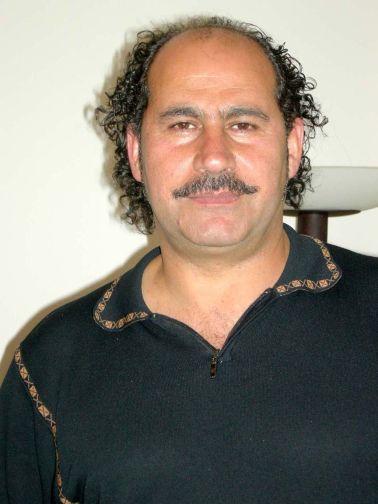
Ali Bader
- Iraq, Jordan
- Zu Gast beim ilb: 2009
Ali Bader was born in Baghdad in 1974. He did his military service during the first and second Gulf Wars. He subsequently followed a programme in book studies and restoration at the National Manuscript Archive in Baghdad, alongside studies in French literature at Baghdad University.
Bader is a chronicler of the recent history of Iraq and its capital, Baghdad. In his novels he portrays the cultural, political and social conditions in Iraq. »As a knowledgeable interpreter of history, well-versed in post-colonial theory, Bader describes the arc from the era of Turkish imperialism to the final nightmare of Saddam Hussein’s era.« (NZZ) Although he adopts the genre of the historical novel, he does not make literary realism his guiding principle. Rather, he interweaves realistic representation with alienation. In 2001 Bader published his first novel »Baba Sartir« (English: Papa Sartre, 2009), which brought him international acclaim. In this work, in a satirical manner, he confronts Iraqi intellectuals and their helpless imitations of French existentialism. Following an abortive attempt to study in France, the protagonist of the story, Abd ar-Rahman, returns to Iraq in order to found an existentialist movement, modelled on that of his idol. Convinced of the rightness of his aim of converting his country’s intellectuals to Sartre’s ideas, he feels especially qualified on account of his physical similarity to the philosopher and his marriage to Germaine, who, he claims, is the great philosopher’s cousin.
2002 saw the publication of the novel »Shita’ al-‘a’ila« (tr: The Winter of the Family) in which he recounts the collapse of the Baghdad aristocracy in the 1950s. The novel »al-Walima al-‘ariya« (2004, tr: The Naked Banquet) is about the fall of the Ottoman rulers and the conquest of Baghdad by British troops during the First World War. Bader presents a moving account of the calamitous effects of war and despotism in the Middle East.
In »al-Haris at-tabagh« (2008, tr: The Guardian of Tobacco) he deals with cultural life in Iraq after the invasion of the American troops. The novel was included on the long-list for the Arabic Booker Prize in 2009. His most recent novel »Muluk ar-rimal« (tr: Kings of the Desert) is about the conflict between the Iraqi armed forces and the nomadic steppe-dwellers.
Ali Bader was also active as a war correspondent in the Middle East, published articles and poems in Iraqi and Arab newspapers, and worked as an editor for the literary journal »Al-Talia«. He received the Abu-l-Qasim ash-Shabi prize in Tunisia in 2001, the State Literature Prize in Baghdad, the prize for Narrative Creativity in the United Arab Emirates and won the Ibn Battuta Prize for Contemporary Travel Literature.
Ali Bader lives in Amman, Jordan.
© international literature festival berlin
Shita’ al-’a’ila
al-Mu’assasa al-’arabiya
li-d-dirasat wa-n-nashr
Bagdad, 2002
al-Walima al-’ariya
Manshurat al-jamal
Köln/Beirut/Bagdad, 2004
al-Haris at-tabagh
al-Mu’assasa al-’arabiya
li-d-dirasat wa-n-nashr
Beirut, 2008
Papa Sartre
American University of
Cairo Press
Kairo/New York, 2009
[Ü: Aida Bamia]
Übersetzer
Aida Bamia
